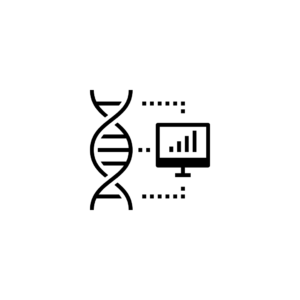Description
A Master of Technology (M.Tech) in Information Technology (IT) is an advanced degree program that focuses on the various aspects of information technology, including software development, database management, networking, cybersecurity, and data analytics. This program equips students with both theoretical knowledge and practical skills necessary for complex IT challenges in various industries.
Curriculum Overview
The curriculum for an M.Tech in Information Technology typically includes core courses, electives, practical lab work, and a research thesis or project. Here are some common subjects and areas of study you might encounter in this program:
Advanced Data Structures and Algorithms:
Study of complex data structures and algorithm design, analysis, and application.
Database Management Systems:
Principles of database design, implementation, and management, including SQL and NoSQL databases.
Software Engineering:
Techniques for software development, project management, and methodologies such as Agile and DevOps.
Computer Networks:
Overview of networking principles, protocols, architectures, and security in computer networks.
Web Technologies:
Development of web applications, including front-end and back-end technologies, frameworks, and APIs.
Mobile Application Development:
Techniques for designing and developing mobile applications for various platforms.
Machine Learning and Artificial Intelligence:
Fundamentals of machine learning algorithms and AI applications in IT systems.
Cybersecurity:
Study of security principles, cryptography, risk management, and ethical hacking practices.
Cloud Computing:
Overview of cloud architecture, services, deployment models, and cloud-based solutions.
Big Data Technologies:
Exploration of big data frameworks, tools, and techniques for data processing and analysis.
Human-Computer Interaction:
Principles of designing user-friendly interfaces and improving user experience (UX) in software applications.
Information Systems Management:
Study of the management and strategic use of information systems in organizations.
Internet of Things (IoT):
Concepts of interconnected devices and systems, including IoT architecture and applications.
Research Methodology:
Research techniques and tools for conducting technology-oriented studies and projects.
Capstone Project/Thesis:
A significant research project or practical application that allows students to design and implement a solution to a real-world IT problem.
Career Opportunities
Graduates with an M.Tech in Information Technology can pursue a wide range of career opportunities in various sectors such as technology, finance, healthcare, education, and government. Some potential job roles include:
Software Developer/Engineer: Designing, coding, and testing software applications and systems.
Database Administrator: Managing database systems, ensuring data integrity, security, and performance.
Network Engineer: Setting up and managing computer networks, ensuring reliability and security.
Cybersecurity Analyst: Protecting an organization?s IT infrastructure from cyber threats and vulnerabilities.
Data Scientist/Analyst: Analyzing data to generate insights and support decision-making processes.
System Architect: Designing and implementing IT infrastructure and integrated systems within organizations.
Web Developer: Building and maintaining websites and web applications.
IT Project Manager: Overseeing IT projects, managing teams, budgets, and timelines.
Cloud Solutions Architect: Designing cloud-based solutions and managing cloud resources.
Research Scientist in IT: Conducting research in both academic and industrial settings focused on new technologies and methodologies.
Further Education
Graduates may consider pursuing a Ph.D. in Information Technology or related fields to engage in advanced research or academic careers. Additionally, obtaining specialized certifications such as Certified Information Systems Security Professional (CISSP), AWS Certified Solutions Architect, or Certified Data Professional (CDP) can enhance career prospects.
If you have any additional questions about the curriculum, career paths, or other aspects of a Master of Technology in Information Technology, feel free to ask!









